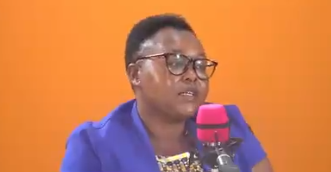

Mediheal Group of Hospitals Vice President Maryline Limo has denied receiving any formal communication from the Ministry of Health regarding the findings of an investigation into alleged organ trafficking.
Speaking during an interview with Spice FM on Wednesday, Limo said she had not received any report but said she would have to confirm with the board of directors.
“We have not received any formal communication from
them (MoH), it is just this press release that came in yesterday,” she said.
“But we are working well with the government.”
At the same time, Limo said the hospital is not
responsible for providing kidney donors, stating that they encourage organ recipients
to come with their relatives as possible donors.
On Tuesday, Health Cabinet Secretary Aden Duale confirmed that the MoH is
investigating Mediheal Hospital in Eldoret over allegations of organ
trafficking involving foreign kidney donors.
This followed a complaint from the Transplantation Society, via a letter
dated July 20, 2023, which raised concern over a rising number of Israeli
nationals receiving kidney transplants in Kenya.
To look into the matter, the Ministry formed a special team of experts. This
included doctors, transplant specialists, ethicists, government officials and
medical regulators.
The team carried out an investigation between December 5 and 8, 2023.
Their focus was to check whether the claims were true, inspect how transplant
services were being run at the hospital and recommend next steps.
The hospital under review had official permission to perform kidney
transplants.
Over five years, Mediheal had done 372 transplants—mainly for patients from
Kenya and East Africa, and a few from countries like Israel, the US and the UK.
The team found that while all kidney donations reviewed had consent forms,
there were gaps. In some cases, it was not clear how the donor and recipient
were related. Some medical tests were also done in India without Ministry
approval.
The findings also revealed that the hospital performed high-risk
transplants, including one involving a patient with confirmed prostate cancer
and proceeded with some procedures despite poor donor-recipient compatibility.
Duale noted that the team made recommendations aimed at strengthening
Kenya’s transplant system.
They proposed an urgent need for the Ministry to implement national standards
and regulatory frameworks to curb organ trafficking and transplant tourism.
The team also proposed creating a centralised
registry for all transplant services and urged for better documentation and
verification processes, especially for foreign nationals seeking transplants in
Kenya.








![[PHOTOS] Guardian Angel bus catches fire in Kikuyu](/_next/image?url=https%3A%2F%2Fcdn.radioafrica.digital%2Fimage%2F2025%2F04%2F58287f0a-f201-4a78-87f0-6f147ad8ba8a.jpg&w=3840&q=100)



